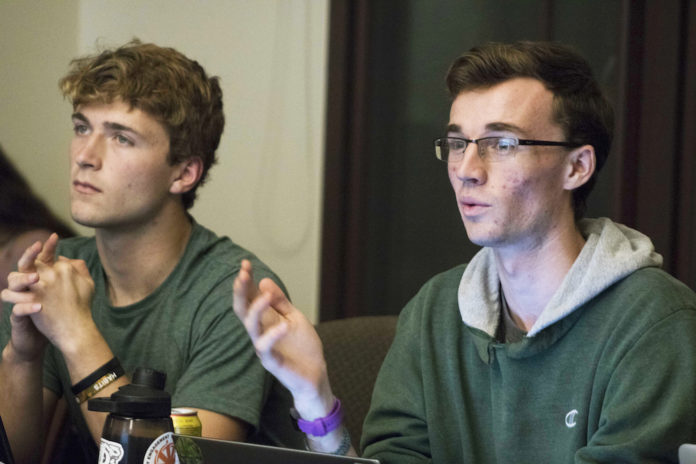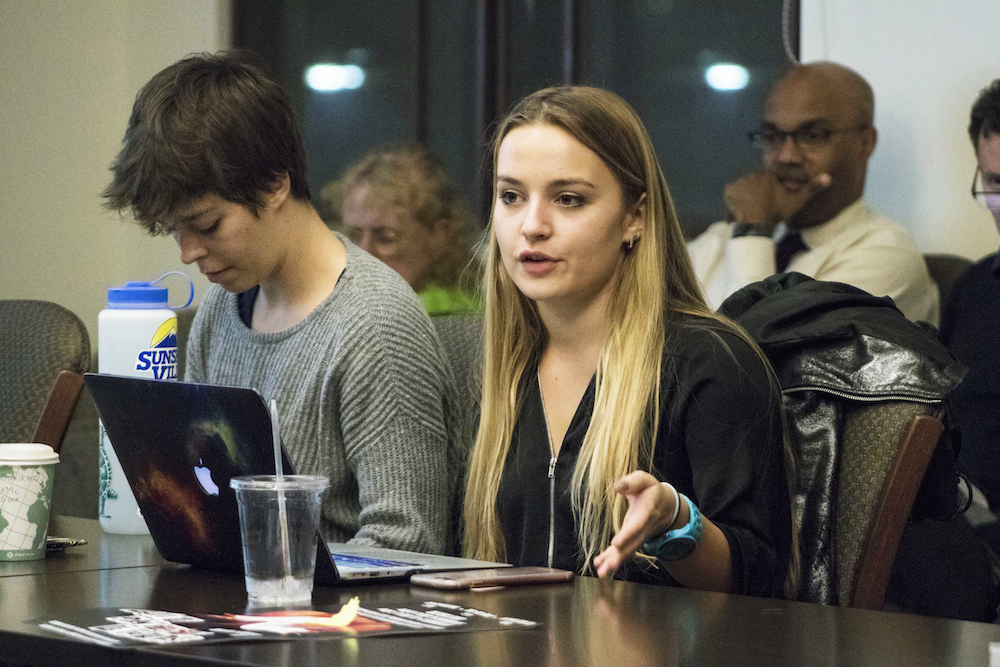
Associated Students of Occidental College (ASOC) Vice President of Academic Affairs Ellie Findell (sophomore) sent a campus-wide email Nov. 1 inviting students to submit academics-related questions to be answered by members of the College’s administration, including Dean of the College and Vice President for Academic Affairs Wendy Sternberg, Associate Dean for Curricular Affairs Ron Buckmire and other faculty at the college. In the email, Findell described the panel as a method to increase transparency between students and administrators at Occidental.
“The purpose of the form was really just to say, here is a chance for you to ask or comment about academics at Occidental,” Findell said. “Not to be negative or positive, just an opportunity for students to express themselves.”
Findell and the Academic Affairs council of ASOC Senate arranged the panel. Academic Affairs council member Stephi Howard (sophomore) said the idea for the panel stemmed from the administration’s desire to improve their relationship with the student body.
“Ellie had had meetings with administrators, and they had expressed that they wanted to improve connection and communication with students,” Howard said. “So members of administration offered to come speak at an ASOC meeting on their own volition.”
Howard and Findell reported that over 250 students submitted questions on the form. Before the ASOC meeting, the council members compiled the most frequently asked questions to give the administrators context as to what issues students are most concerned about. According to Howard, while the majority of responses were academics-related, some students used the form to submit questions about other campus-related concerns.
“When we were going through the responses, there were some that had nothing to do with academics,” Howard said. “Then I realized no, students were just so eager to have some platform to express their concerns about things at the college at large, not related to academics, that they were putting even safety concerns about lighting on campus.”
Among some of the topics advertised in Findell’s Nov. 1 email were concerns surrounding the Black Studies program. In April 2019, professor Courtney Baker, an associate professor of American Studies and the co-founder and chair of Black Studies, announced her resignation. In a letter explaining her departure from Occidental, Baker cited issues with curriculum and support from the college, among others, as reasons for her departure.
The first year orientation panel was also advertised in the email as a possible topic of discussion. Several students voiced concerns about faculty mishandling the panel discussion on racism during an orientation program about the summer reading for incoming first years.
At the beginning of the meeting, Sternberg said it was not the time for answering questions about the Black Studies program or the first-year orientation program, and asked that the discussion be saved for the Equity and Inclusion committee.
“My goal was not to gloss over any of the concerns about any one program, but give students information that they need to understand the entirety of the academic program,” Sternberg said.
Sternberg instead discussed the process of assigning tenure to faculty and explaining how interdisciplinary programs fit into the department structure. Sternberg also provided more clarity as to how the college decides to allocate their resources among departments.
“At the end of the day, every decision to support any academic program at the college comes with a cost, and we are very sensitive to keeping our costs down,” Sternberg said. “We don’t want to unnecessarily pass costs on to our students, so we have to be very careful about every allocation decision that we make.”
According to Sternberg, the dialogue between students and administration facilitated at the ASOC meeting was something she could see happening again for both students and faculty.
“I was inspired by this conversation with the students. I thought, you know, the faculty probably want to hear some of this too,” Sternberg said. “They generally understand the structure of academic programs, but I wanted the faculty to know what I conveyed to the students. So at Thursday’s faculty meeting, I did a version of that same presentation.”
According to Findell, even though over 40 students RSVP’d to attend the ASOC meeting, only one community member was in attendance at the meeting. Howard commented on this lack of participation when discussing the disappointing turnout.

“So many people responded: 250 out of 2000. I feel like that’s a good number. and some people had very passionate responses,” Howard said. “So why didn’t anyone show up? How could we have facilitated a better, more comfortable environment in which more people felt like they could come and express things or ask questions?”
![]()






























